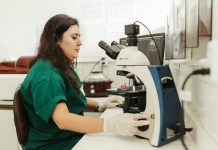
Big news in the battle against cancer! A team from the University of Otago has made a big discovery.
They have found something important that might explain why colon cancer spreads so quickly.
This is a huge deal, because colon cancer kills a lot of people in New Zealand every year.
The Research Team
The research team was led by a person called Aniruddha Chatterjee, along with Euan Rodger and Rachel Purcell.
These folks spent a lot of time studying colon cancer. They found some strange things happening in the body’s “instruction code,” which is DNA.
What is DNA?
Imagine your body is a giant factory. Your DNA is like the boss. It gives instructions to all the worker cells.
It tells them what to do, how to do it, and when to do it. But sometimes, the boss gets confused and starts giving wrong instructions. That’s when cancer can happen.
What Did They Find?
Dr. Rodger and his team found that sometimes, the DNA in colon cancer patients gives out wrong instructions. This leads to cancer spreading faster.
The cancer starts in the colon but can move to other places like the liver. When it spreads like this, it’s called metastasis. Metastasis is what usually leads to death in cancer patients.
They also found something called ‘methylation’. This is a chemical process that changes the way DNA works. By studying methylation, we can better understand how cancer spreads and maybe even stop it.
Methylation and Cancer
The team took samples from 20 patients who had colon cancer. They studied samples from the colon and from tumors in the liver.
They found nearly 300 areas in the DNA that had different methylation levels in the liver tumors. These changes were only found in aggressive liver tumors, not in the colon or in healthy tissue.
Why is This Important?
This is big news, especially for New Zealand. Every year, 1,200 people die from colon cancer in the country.
The scary part is that the number is growing, especially in people under 50 and in Maori and Pasifika communities.
Understanding these methylation changes could help us figure out why some cancers are so aggressive. If we know why, we can better predict what will happen and come up with better treatments.
What’s Next?
The work is not over. Chatterjee, Rodger, and the team are going to keep researching these aggressive cancers.
They hope their work will lead to better treatments and save more lives in the future. The battle against cancer is tough, but with this new discovery, we might have a better chance to win.
If you care about health, please read studies that zinc could help reduce COVID-19 infection risk, and vitamin D supplements strongly reduce cancer death.
For more information about health, please see recent studies about nutrients that could help reduce high blood pressure, and new therapy from bananas may help treat COVID-19.
The study was published in iScience.
Copyright © 2023 Knowridge Science Report. All rights reserved.



